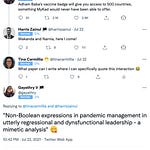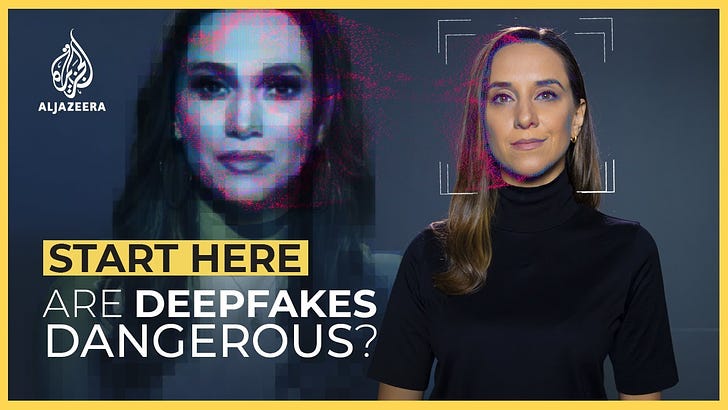This week…
Facebook plans to lure creators with a $1 billion programme. In comparison, YouTube has a $100 million fund for YouTube Shorts, and TikTok has a $200 million creator fund. TikTok also surpassed 3 billion global downloads this week—the first non-Facebook app to do so. The only other apps to have reached that milestone are Facebook, Instagram, Whatsapp and Messenger. It’s a good time to be a creator, huh?
And for our interview segment, I speak with Sheena Baharudin, poet and assistant professor of literature at the University of Nottingham Malaysia about being a multilingual, multimedia creator. You can find the full transcript at the link below. But first, a selection of top stories on my radar, a few personal recommendations, and the chart of the week.
Right-wing extremism has deep roots in Southeast Asia
Munira Mustaffa for Global Network on Extremism & Technology:
The idea that neo-Nazi thoughts, white-supremacist politics and red pill victimhood have been adopted by Asian youths who are active online users unbounded by geographical borders but are neither white nor Aryan themselves can be mystifying to outsiders. After all, the concept of neo-Nazism lies in the assertion that the white race, or the Aryan race, reigns supreme in the racial hierarchy. But these ideas are easily adaptable into local context, and the Internet has made them easier than ever for the latent fascist to access.
If anyone needs a primer on right-wing extremism in Southeast Asia, this is it. Fascinating piece with great hyperlinks. You might remember the writer from our conversation on online deception.
A new tool shows how Google results vary around the world
Tom Simonite for Wired:
Search Atlas makes it easy to see how Google offers different responses to the same query on versions of its search engine offered in different parts of the world. The research project reveals how Google’s service can reflect or amplify cultural differences or government preferences—such as whether Beijing’s Tiananmen Square should be seen first as a sunny tourist attraction or the site of a lethal military crackdown on protesters.
Divergent results like that show how the idea of search engines as neutral is a myth, says Rodrigo Ochigame, a PhD student in science, technology, and society at MIT and cocreator of Search Atlas.
The ethics of a deepfake Anthony Bourdain voice
“The new documentary Roadrunner uses AI-generated audio without disclosing it to viewers,” writes Helen Rosner for The New Yorker:
A common refrain on Twitter in recent days has been that Anthony Bourdain would surely have hated the use of his A.I.-generated voice. He is often considered a champion of “authenticity,” and some fans have criticized the technology as antithetical to that standard. But authenticity is a slippery concept, especially in the world of food and travel—something that Bourdain himself knew.
What I read, watch and listen to…
I’m reading Concern trolls and power grabs: Inside Big Tech’s angry, geeky, often petty war for your privacy, a longform on the tension inside W3C by Issie Lapowsky for Protocol.
I’m playing Fakes? No thanks! from the Polish fact-checking organisation Demagog.pl, which developed an English version of its media literacy game.
Chart of the week
Completely unplanned yet very much fitting with the theme of this week’s newsletter that another Malaysian poet sent this to me, knowing my love for charts:












